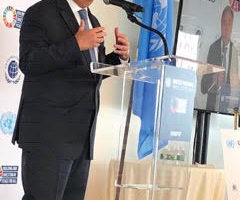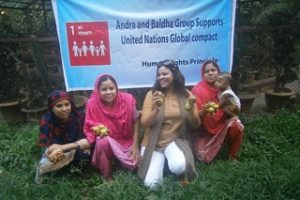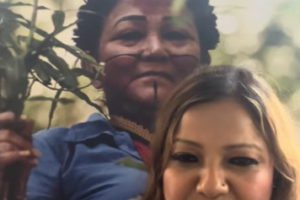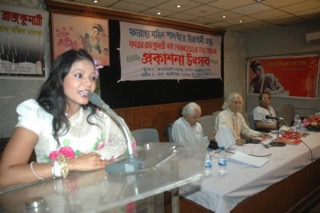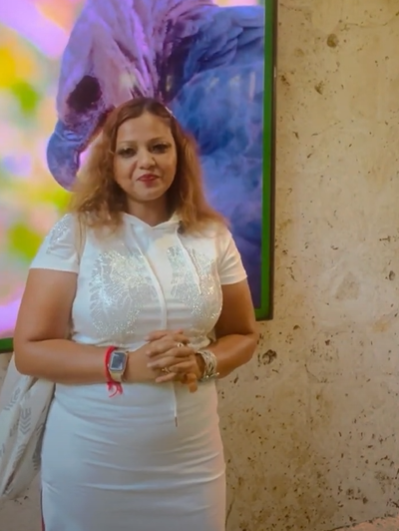Film star Cate Blanchett will back a global campaign on Monday to end the plight of an estimated 10 million people with no nationality amid warnings rising xenophobia is stymieing efforts to meet a 2024 deadline for eradicating statelessness.
The double Oscar-winner will speak at a major meeting in Geneva aimed at persuading governments to dramatically escalate progress in the campaign called #Ibelong.
Blanchett’s attendance will help boost attention on some of the world’s most invisible people.
Not recognised as nationals of any country, stateless people are often deprived of basic rights like education and healthcare, and risk exploitation and detention.
Blanchett will interview Maha Mamo, a formerly stateless activist who has become a torchbearer for #Ibelong. As a goodwill ambassador for the UN refugee agency (UNHCR), Blanchett recently visited Bangladesh to meet stateless Rohingya who have fled Myanmar, and has met displaced Syrian families in the Middle East.
When UN chief Antonio Guterres launched the #Ibelong initiative in 2014, during his time as head of the UNHCR, he described statelessness as a “cancer” that must be excised.
But the task ahead is monumental. Only about 200,000 people acquired citizenship during the first half of the campaign, barely making a dent in the overall number.
And U.N. officials admit the total may now be even higher than in 2014 because of increasing displacement triggered by crises in Syria, Venezuela and elsewhere, which has raised the risk of many children growing up stateless.
There is also no solution in sight for many of the largest groups of stateless people including the Rohingya, hundreds of thousands of whom have fled to Bangladesh following an upsurge in violence.
Experts on statelessness spoke of “storm clouds on the horizon” as forced displacement, xenophobia and populism complicate efforts to meet the 2024 deadline.
They are keeping a close eye on India, where 1.9 million people in the northeastern state of Assam have been left off a register of citizens, stoking concerns that many could become stateless.
DOGS HAVE MORE RIGHTS
People end up stateless for a host of historical, social and legal reasons including migration, flawed citizenship laws and ethnic discrimination. Others fall through the cracks when countries break up.
Aside from Myanmar, there are big stateless groups in Ivory Coast, Thailand, Nepal, Kuwait and some former Soviet countries.
Stateless people have previously told the Thomson Reuters Foundation that they feel stigmatised and forgotten.
“We’ve had people telling us, ‘dogs are more important than I am’,” said Melanie Khanna, head of the UNHCR’s statelessness section.
“People feel totally scarred and isolated. They often say, ‘I thought it was just me’. It sends chills down your spine.”
Despite slow progress on reducing numbers, Khanna said there was far greater global awareness of statelessness than five years ago.
Almost all countries will be represented in Geneva, with more than 20 sending ministers. UN officials expect governments to make scores of pledges which will provide a roadmap for accelerating the campaign.
In July, Kyrgyzstan made history when it became the first country to officially end statelessness. UN officials believe Turkmenistan, Tajikistan, and Kazakhstan could also meet the 2024 deadline.
Thailand, where nearly 479,000 people are stateless, including members of ethnic hill tribes in the northern border regions, is also stepping up action.
The issue made international headlines last year during rescue efforts to save a young Thai football team trapped in a flooded cave.
During the drama it emerged that several of the boys and their coach were stateless. They were granted citizenship after their ordeal.
WIN-WIN
But resolving statelessness is not just a human rights issue. Statelessness has fuelled conflict and displacement in both Myanmar and Ivory Coast.
Khanna said there was a growing recognition that resolving statelessness was a “win-win” because it was in governments’ interests to have everybody feel invested in the society they live in and motivated to contribute.
The UN Sustainable Development Goals (SDGs), a set of global pledges on tackling poverty, inequality and other ills with an overall ambition to “to leave no one behind”, have helped shift attitudes, Khanna said.
“The SDGs have allowed us to talk about this whole area as a development issue and not just a human rights one,” she added.
“This makes a lot of sense because you don’t want disenfranchised, impoverished people on your territory.”
Khanna said an increasing number of countries were changing their nationality laws and policies to prevent future generations ending up in limbo.
Colombia, for example, has announced it will give citizenship to thousands of children born to Venezuelan migrants to prevent them growing up stateless.
Other countries have scrapped discriminatory laws that prevent women passing their citizenship to their children – a major cause of statelessness.
The impact of such laws has been clearly seen during the Syrian war with many displaced mothers unable to obtain documents for their children where the father is dead or absent.
Iran became the latest country to pass reforms last week – a move human rights experts believe could help thousands of children obtain citizenship.
There has also been a flurry of countries joining the UN conventions on preventing and eliminating statelessness.
The 1961 convention stipulates that a state must grant nationality to anyone born on its territory who would otherwise be stateless – a safeguard that would wipe-out most new cases of statelessness if adopted by all countries.
“Statelessness causes devastating and totally unnecessary damage,” Khanna said.
“But solutions aren’t complicated. The biggest obstacle is political will.”





